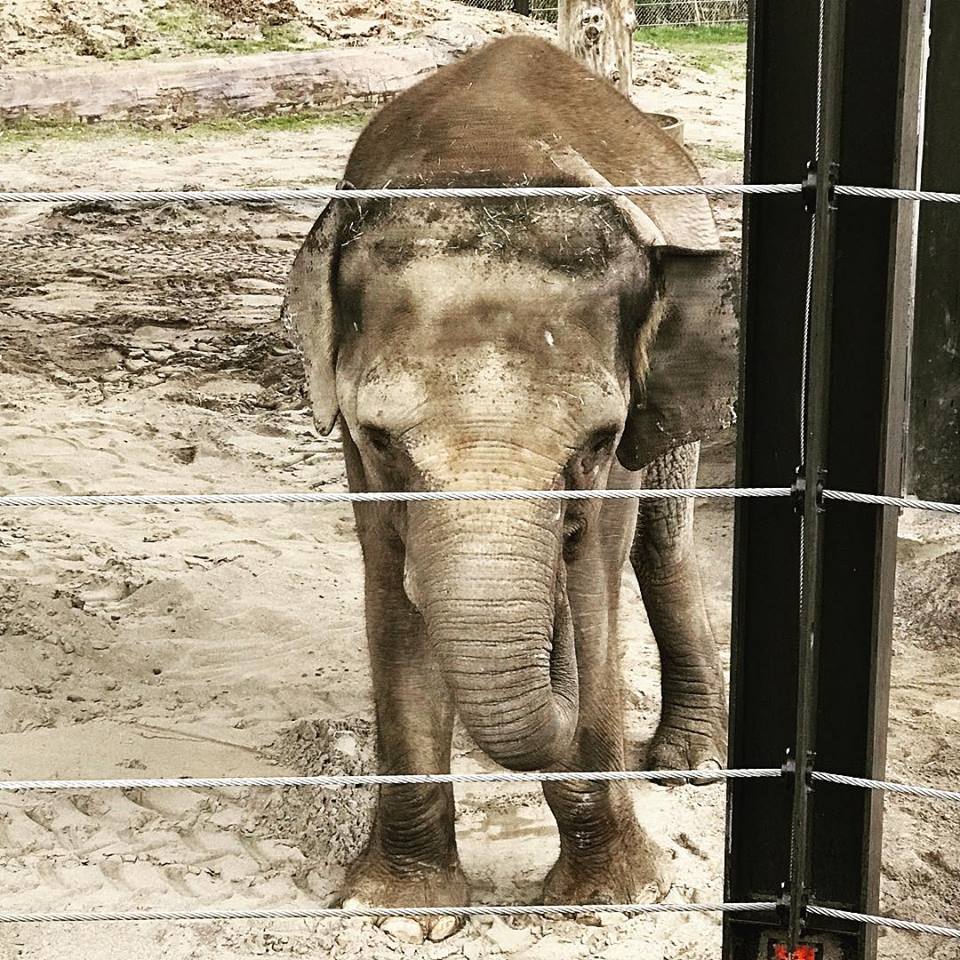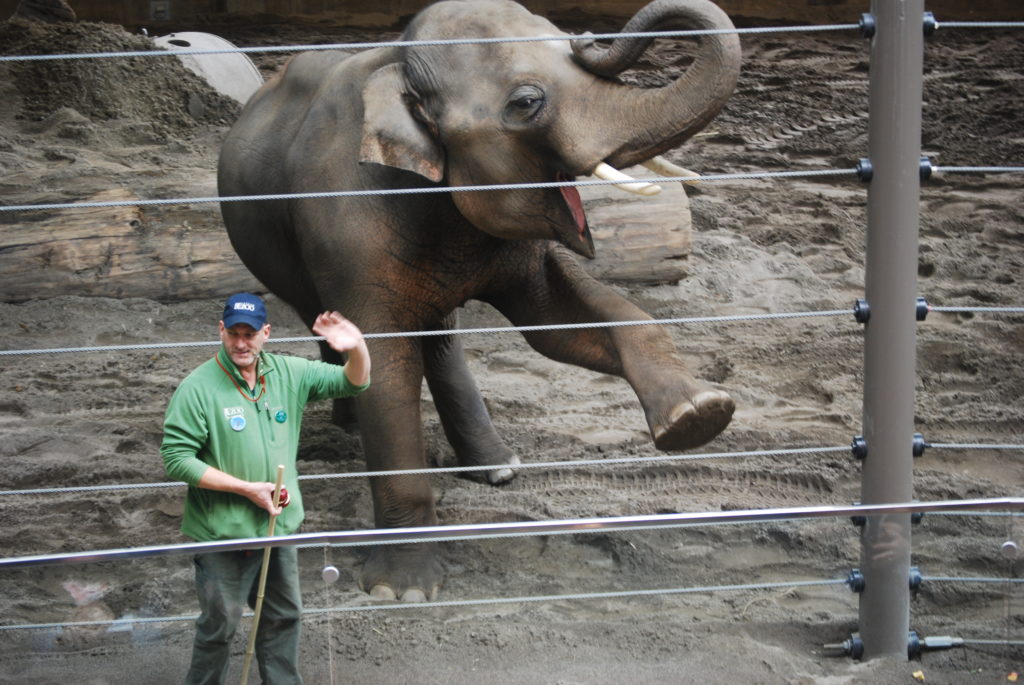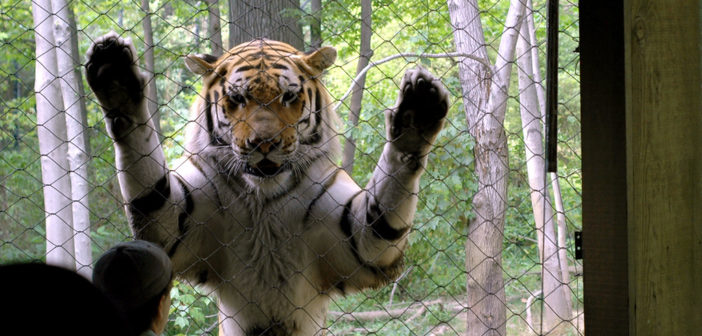On national zoo lovers day, In Defense of Animals is calling on the Association of Zoos and Aquariums (AZA) to eliminate zoonotic disease transmission between animals and humans at member zoos. At least one tiger has tested positive for COVID-19 at the AZA-accredited Bronx Zoo and others are displaying symptoms. Tuberculosis (TB) is rampant in the U.S. captive elephant population and this deadly, highly-infectious disease continues to be contracted by human zookeepers.
Thousands of In Defense of Animals supporters have petitioned the AZA calling for a permanent phase-out of elephant captivity at member zoos across the U.S. to stop the spread of TB: www.idausa.org/stopzooTB.
“With the coronavirus infection of at least one tiger at the AZA-accredited Bronx Zoo, we must acknowledge that zoos are a threat to human and animal lives,” says Laura Bridgeman of In Defense of Animals. “Zoos and circuses in the United States have been putting the public and their own staff at risk of TB transmission from captive elephants for far too long. It is time for the Association of Zoos and Aquariums to stop risking human and animal lives by ending breeding and imports, shutting down elephant exhibits, and creating a plan to send elephants to accredited sanctuaries.”

The novel coronavirus pandemic continues to cause global havoc, and in its wake is a growing awareness of the threats of animal-borne zoonotic diseases — those that can jump between humans and other species. Like COVID-19, TB is a zoonotic disease which can be transmitted from non-human animals to humans, but its effects can be even more deadly. There are many current TB cases in elephants held captive in U.S. zoos.
According to the World Health Organization, TB is one of the top 10 causes of death worldwide, killing millions of people each year.
The risk of elephants transmitting TB to humans is generally greater among those who work closely with elephants, though it is thought that TB can spread from elephants to humans through the air, risking the possibility of wider contagion, including to zoo guests. Close public interactions, such as rides or feedings, are particularly concerning.
Many people who work directly with elephants at U.S. zoos and circuses have caught TB over the last several decades. In 2019, eight staff members at Point Defiance Zoo in Tacoma, Washington tested positive for latent TB that was transmitted by elephants. At the Oregon Zoo, which has been included on In Defense of Animals’ 10 Worst Zoos for Elephants list for 10 separate years, seven staff members became infected in 2016 following a TB outbreak among three bull elephants and elephant infections continued into 2019. The Bronx Zoo and St. Louis Zoo both had TB-positive elephants in recent years. Each of these facilities is accredited by the Association of Zoos and Aquariums.

One of the reasons TB is so prevalent in U.S. zoos is that captivity compromises elephants’ immune systems, making them more likely to fall ill. The tight confines of captivity are entirely unnatural for elephants and cause a range of well-documented physical and psychological ailments, including chronic illnesses, shortened lifespans and disease proliferation. TB has been a scourge on captive elephant populations in the U.S. for decades, proving that zoos are simply incapable of providing adequate living conditions to prevent the spread of this disease, despite their best efforts, and despite adhering to standards set by the Association of Zoos and Aquariums.
Accredited sanctuaries offer a necessary counterpoint to public display facilities. With often thousands of acres for elephants to roam, these sanctuaries are not designed to enable close viewing or contact with the public and implement strict protected contact procedures to minimize keeper contact. Their ample space also allows for more effective quarantining of sick elephants. Accredited sanctuaries are not only more suitable for elephants’ needs, they more easily negate the risk of zoonotic TB transmission.
“In a post-COVID world, much will change — including the public’s tolerance for places that harbor and transmit animal-borne diseases,” says Marilyn Kroplick M.D., president of In Defense of Animals. “The Association of Zoos and Aquariums is well aware of the zoonotic risks posed by TB and captive elephant populations. It is high time that the AZA implement a phase-out plan for captive elephants in the United States and around the world.”
Featured image: a tiger at the Bronx Zoo, where currently at least one tiger has tested positive for COVID-19. Image credit Jeffrey, CC BY-SA 2.0.





